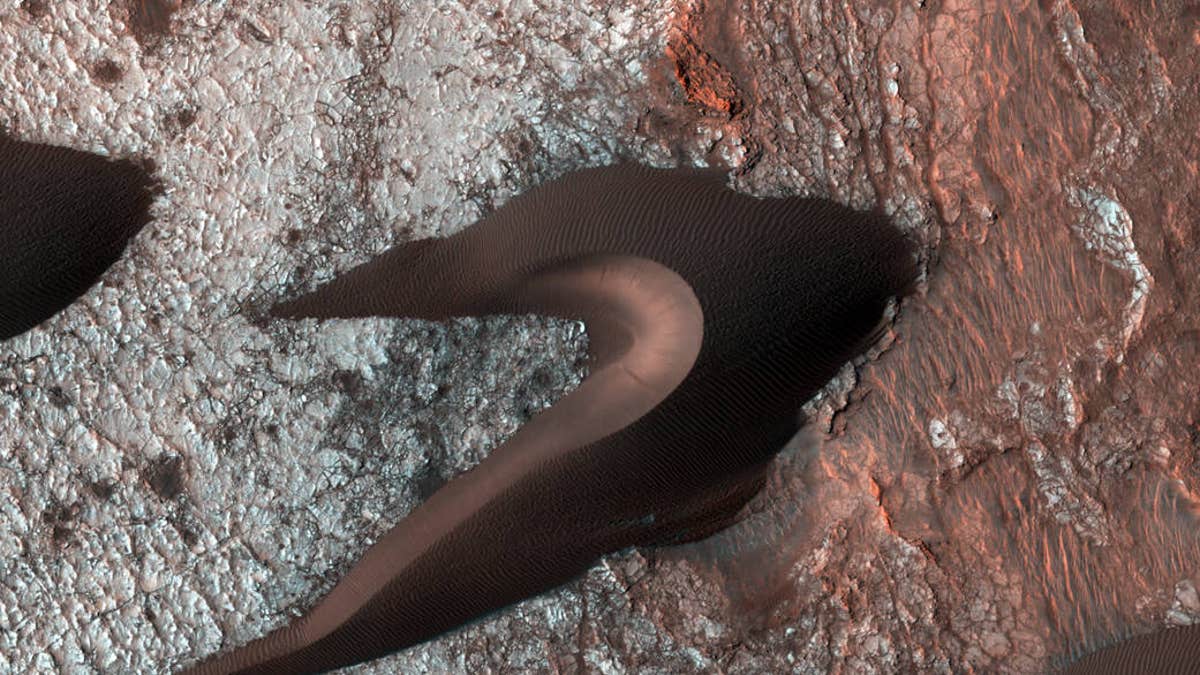
(NASA/JPL-Caltech/University of Arizona)
A leech appears to be crawling across the surface of Mars.
But it’s actually an amazing shot of sand dunes on Mars. The image was taken this summer by the High Resolution Imaging Science Experiment camera aboard NASA's Mars Reconnaissance Orbiter, which routinely takes images of Martian sand dunes to study the mobile soils. Images like these also provide information about erosion and movement of surface material, about wind and weather patterns as well as the soil grains and grain sizes. Sometimes they can even tell scientists something about the nature of the substrate beneath.
Related: Supermoon lunar eclipse in pictures
If you look closely, you can notice spaces between the dunes, revealing a resistant and highly fractured surface. The fractured ground is resistant to erosion by the wind, according to NASA, suggesting the material is bedrock that is now shattered by a history of bending stresses or temperature changes, such as cooling.
But there are other theories out there. The surface may be a sedimentary layer that was once wet and shrunk and fractured as it dried, like gigantic mud cracks.








































